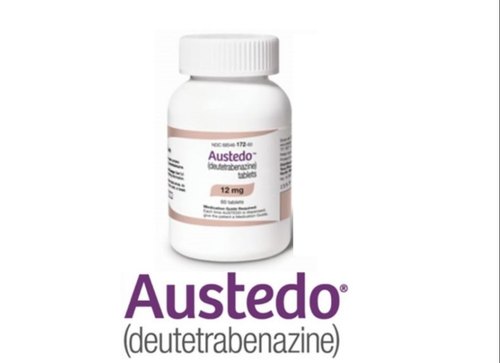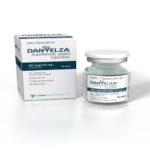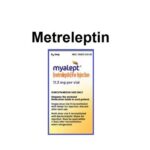Deutetrabenazine (Austedo): Uses, Dosing, Side Effects, Price

What Is Deutetrabenazine (Austedo) And What Does It Treat?
Deutetrabenazine (Austedo), a medicine developed by Israel’s Teva Pharmaceuticals is used to decrease the frequency and severity of involuntary, uncontrollable muscle movements that are related to a condition known as Tardive Dyskinesia (TD).
Tardive Dyskinesia is associated with chronic use of certain medications, such as antipsychotics. Deutetrabenazine (Austedo) may also be used to treat abnormal involuntary movements associated with Huntington’s Disease.
Huntington’s disease is a hereditary disease that causes brain cells to die, leading to symptoms such as involuntary jerky movements, behavioral problems, and dementia (loss of intellectual function). The disease is usually first noticed between 35 and 45 years of age and gets worse over time.
Huntington’s disease is caused by defects in the gene responsible for the production of a protein called huntingtin. The gene abnormalities result in an abnormal form of the protein being produced, which causes damage to the cells in specific areas of the brain.
Huntington’s disease is a debilitating and life-threatening condition because it causes severe behavioral and mental problems, a progressive loss of the ability to move, and potentially life-threatening complications.
Tardive dyskinesia on the other hand affects an estimated 500,000 persons in the United States. About 60% to 70% of cases are mild, and about 3% are extremely severe. Particularly at risk are patients who have been treated for schizophrenia, schizoaffective disorder, or bipolar disorder.
Symptoms of TD include:
• Lip-smacking, puckering or pursing
• Tongue rolling or darting in and out of the mouth
• Jaw clenching or grimacing
• Trunk and hip rocking, jerking or thrusting
• Twisting or rhythmic movement in fingers and toes
Deutetrabenazine (Austedo) may help improve some or all of these symptoms.
Is Deutetrabenazine (Austedo) approved?
Deutetrabenazine (Austedo) was approved by the U.S. Food and Drug Administration (FDA) for:
- Chorea associated with Huntington’s Disease on April 3, 2017
- Treatment of Tardive Dyskinesia ON August 30, 2017
What Is The Most Important Information I Should Know About Deutetrabenazine (Austedo)?
For deutetrabenazine to work properly, it should be taken every day as prescribed by your healthcare provider. Missing doses of deutetrabenazine may increase your risk for a relapse in your symptoms.
Deutetrabenazine (Austedo) may cause drowsiness. Avoid activities that require alertness, such as driving a car or operating machinery until you learn how your body responds to it.
If you experience any sudden changes in mood, behaviors, thoughts, or feelings, consult with your doctor immediately.
Only your health care provider can determine the length of deutetrabenazine treatment that is right for you. Do not stop taking deutetrabenazine or change your dose without talking to your health care provider first.
What Should I Discuss With My Healthcare Provider Before Taking Deutetrabenazine (Austedo)?
• Symptoms of your condition that bother you the most
• If you have thoughts of suicide or harming yourself
• Medications you have taken in the past for your condition, whether they were effective or caused any adverse effects
• If you experience side effects from your medications, discuss them with your provider. Some side effects may pass with time, but others may require changes in the medication.
• Any other psychiatric or medical problems you have, such as depression, heart rhythm problems, long QT syndrome, heart attacks, or liver disease
• All other medications you are currently taking (including over the counter products, herbal and nutritional supplements) and any medication allergies
• Other non-medication treatments you are receiving, such as talk therapy or substance abuse treatment.
• If you are pregnant, plan to become pregnant, or are breast-feeding
• If you drink alcohol or use illegal drugs
How Should I Take Deutetrabenazine (Austedo)?
Deutetrabenazine (Austedo) is usually taken twice daily, with food. Tablets should be swallowed whole; do not chew, crush or break.
Typically, patients begin at 6 mg twice a day and the dose may be increased weekly in increments of 6 mg per day to a maximum of 48 mg per day (given in 2 divided doses). If you are taking deutetrabenazine for Huntington’s disease, you may start at an even lower dose. Only your healthcare provider can determine the correct dose for you.
Use a calendar, pillbox, alarm clock, or cell phone alert to help you remember to take your medication. You may also ask a family member or a friend to remind you or check in with you to be sure you are taking your medication.
What Happens If I Miss A Dose Of Deutetrabenazine (Austedo)?
If you miss a dose of deutetrabenazine, take it as soon as you remember, unless it is closer to the time of your next dose. Discuss this with your healthcare provider. Do not double your next dose or take more than what is prescribed.
What Should I Avoid While Taking Deutetrabenazine (Austedo)?
Avoid drinking alcohol or using illegal drugs while you are taking deutetrabenazine. They may decrease the benefits (e.g. worsen your condition) and increase adverse effects (e.g. sedation) of the medication. When taking deutetrabenazine for the first time, do not drive or operate dangerous machinery until you know how the medication affects you.
What Happens If I Overdose With Deutetrabenazine (Austedo)?
If an overdose occurs, call your doctor or 911. You may need urgent medical care. You may also contact the poison control center at 1-800-222-1222. A specific treatment to reverse the effects of deutetrabenazine does not exist.
How Long Does It Take For Deutetrabenazine (Austedo) To Work?
It is very important to tell your doctor how you feel things are going during the first few weeks after you start taking deutetrabenazine. It may take several weeks to see big enough changes in your symptoms to decide if deutetrabenazine is the right medication for you.
Can a pregnant woman take Deutetrabenazine (Austedo)?
If you are planning on becoming pregnant, notify your healthcare provider to best manage your medications. People living with TD who wish to become pregnant face important decisions. Currently, there are no well-controlled human studies of deutetrabenazine in pregnancy. However, increased rates of stillbirths and postnatal mortality were seen when a closely related drug was administered in animal studies. It is important to discuss the risk and benefits of treatment with your doctor and caregivers.
Can a breastfeeding woman take Deutetrabenazine (Austedo)?
Caution is advised with breastfeeding since it is not known if deutetrabenazine passes into your breast milk. Talk to your doctor about the best way to feed your baby during treatment with deutetrabenazine.
What Are The Possible Side Effects Of Deutetrabenazine (Austedo)?
Common side effects of Deutetrabenazine (Austedo) include:
- anxiety,
- bruising,
- constipation, and
- diarrhea,
- drowsiness,
- dry mouth,
- fatigue,
- insomnia,
- urinary tract infection.
Is Deutetrabenazine (Austedo) a safe medication?
This medication is safe when used as prescribed. However, Deutetrabenazine (Austedo) can cause slight shaking, stiffness, trouble moving, anxiety, depression, agitation, restlessness, constipation, urinary tract infection, and irregular heart rhythm.
Are There Any Risks For Taking Deutetrabenazine (Austedo) For Long Periods Of Time?
To date, there are no known problems associated with the long-term use of deutetrabenazine. It is a safe and effective medication when used as directed.
What Other Medications May Interact With Deutetrabenazine (Austedo)?
Deutetrabenazine (Austedo) should not be taken with or within 2 weeks of taking monoamine oxidase inhibitors (MAOIs) or within 20 days of taking reserpine, as these medications can increase side effects and decrease the effectiveness of deutetrabenazine. MAOIs include phenelzine (Nardil®), tranylcypromine (Parnate®), isocarboxazid (Marplan®), and selegiline (Emsam®).
Deutetrabenazine (Austedo) should not be taken with tetrabenazine (Xenazine®) or yalbenazine (Ingrezza®).
The following medications may increase the levels and effects of deutetrabenazine:
• The antidepressants paroxetine (Paxil®), fluoxetine (Prozac®), quinidine (Quinate®), and bupropion (Wellbutrin®)
• Some antiviral medications asunaprevir (Sunvepra®), darunavir (Prezista®), antibiotics such as minocycline (Minocin®)
The following medications may decrease the levels and effects of deutetrabenazine:
• Peginterferon Alfa-2b
Using deutetrabenazine with antipsychotics, tricyclic antidepressants, certain heart medications, and antibiotics may increase the risk of developing irregular heart rhythms.
The risk of Parkinsonism, neuroleptic malignant syndrome, and akathisia may be increased by concomitant use of deutetrabenazine and antipsychotics.
Is Deutetrabenazine (Austedo) the same as tetrabenazine (Xenazine)?
No, Deutetrabenazine (Austedo) is NOT the same as tetrabenazine (Xenazine) Although both medications inhibit the vesicles that carry dopamine to the area between two nerve cells where it is released. Deutetrabenazine is a deuterated form of tetrabenazine and is a vesicular monoamine transporter 2 (VMAT2) inhibitor. The substitution of deuterium for hydrogen at key positions in the tetrabenazine molecule allows a longer drug half-life and less frequent daily dosing.
How much does Deutetrabenazine (Austedo) cost?
The price of 6 mg Austedo oral tablet is as follows:
| Quantity | Per unit | Price |
| 60 | $77.06 | $4,623.88 |





